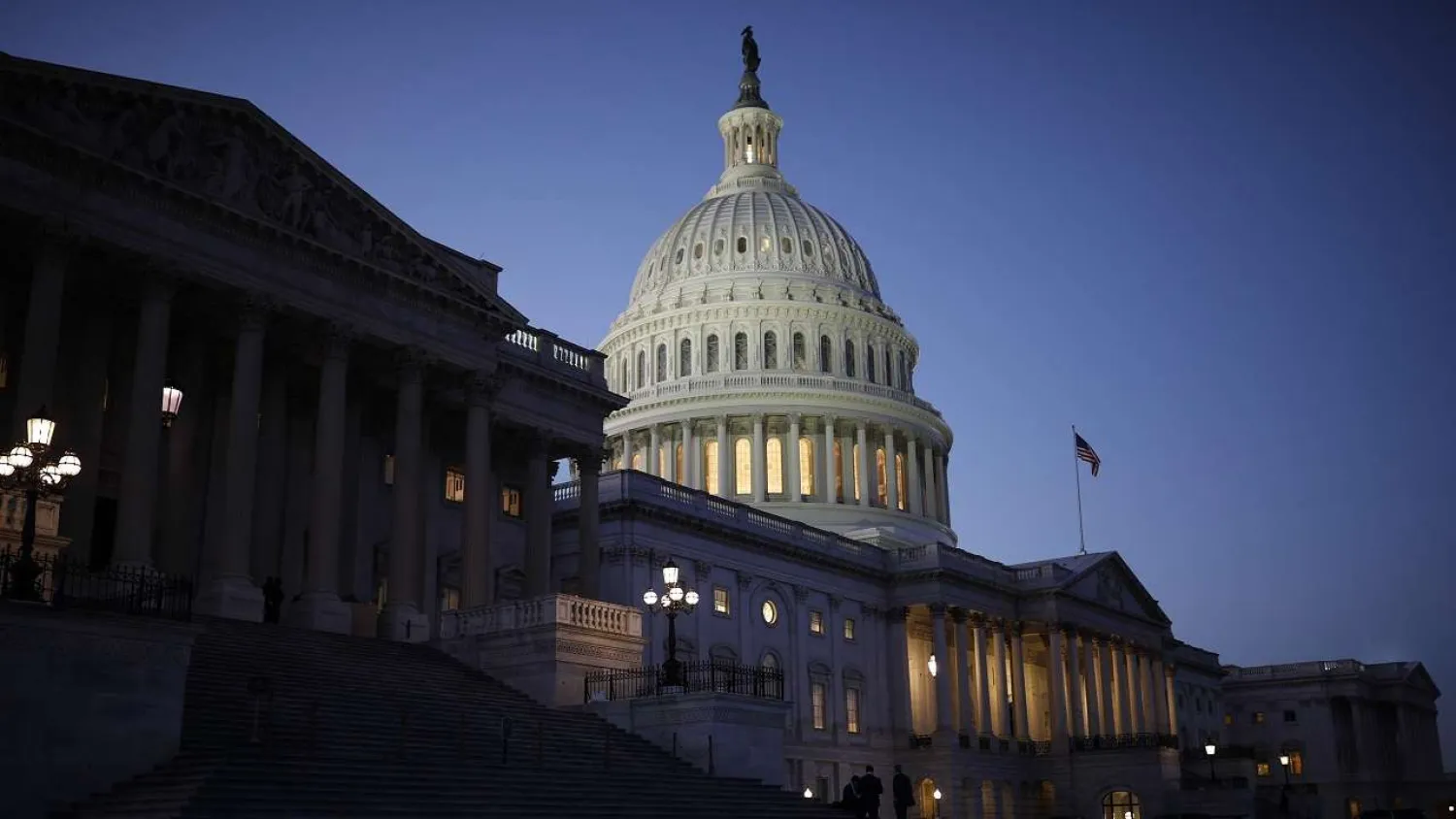Ten US Senators introduced a bipartisan resolution in observance of the tenth anniversary of the Syrian uprising, calling on Washington to support humanitarian aid to the people and condemn the Assad regime’s atrocities.
The resolution denounced the regime’s atrocities against its own citizens and reaffirms the US commitment to hold the regime and its backers accountable for their war crimes and crimes against humanity.
It also lauds Syrian human rights defenders’ brave efforts to document and expose the Assad regime’s unrelenting and indiscriminate violence.
Senator Bob Menendez said that for a decade, the world has borne witness to Assad’s “brazen willingness to kill, torture, gas, and starve his own people in order to maintain his grip on power.”
He indicated the Syrian people have suffered for far too long at the hands of a “butcher whose relentless reign of terror” continues to be sponsored by Iran and Russia.
Menendez called on the US administration to use diplomatic re-engagement to seek concrete measures that serve justice to Assad and help provide Syrians with a path toward reconciliation, stability, and freedom.
Senator Jim Risch, who is also Ranking Member of Senate Foreign Relations Committee (SFRC), said that for over 10 years, Bashar al-Assad and his Russian and Iranian backers have inflicted enormous suffering on Syrians in a prolonged campaign of torture, starvation, chemical weapons, and barrel bombings.
A senior member of the SFRC, Senator Jeanne Shaheen, stated that the tenth anniversary is a reminder of what is still at stake in Syria: the futures and freedoms of Syrians.
Shaheen reiterated the need to end the conflict and hold perpetrators to account, adding that implementing lasting peace must continue to be a US national security policy priority.
They recalled that the Caesar Act seeks accountability for the “Assad regime and its international enablers for atrocities against the Syrian people, denies the Assad regime the resources to fuel its war machine, and sends a clear signal to the international community against normalizing, rehabilitating, or legitimizing Assad and his backers.”
The resolution mentions the role of the Iran and Russia military intervention in support of the Assad regime, enabling and actively participating in the regime’s horrific brutalities against civilians in favor of advancing their narrow interests, which in some cases empowered extremist groups.
Meanwhile, the US State Department spokeswoman said that stability in Syria and the wider region can only be achieved through a political process that represents the will of all Syrians.
Asked about the remarks of UAE’s Foreign Minister Sheikh Abdallah bin Zayed Al Nahyan, the official told Asharq Al-Awsat in an email that Washington is committed to working with allies, partners, and the UN to ensure that a political solution remains within reach.
She said the humanitarian crisis in Syria reached a critical point as a result of the regime's blocking of aid to Syrians.
“It is imperative for the regime and its supporters to engage seriously in political dialogue and allow humanitarian assistance to reach communities in need in order to achieve a sustainable end to the Syrian people’s suffering,” the official said.
Earlier, the FM said that the Caesar Act is complicating the return of Syria to the Arab fold and undermining regional rapprochement efforts.
Speaking at a joint press conference with his Russian counterpart Sergey Lavrov, Al Nahyan asserted that the return of Syria to the Arab League is in the interest of Syria and other countries of the region.
He pushed for “joint action with Syria,” saying that the US economic pressure campaign “as it is today makes the matter difficult.”









